The eternal dilemma of the United States
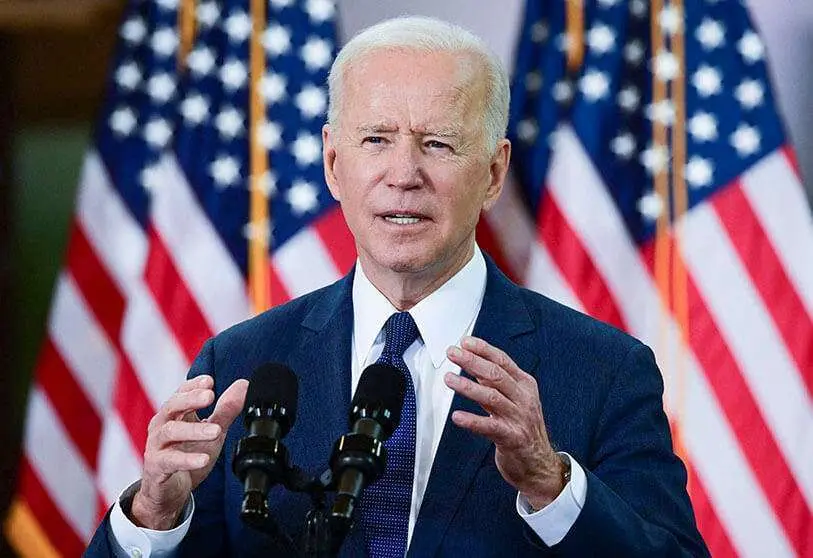
With the twentieth anniversary of the brutal attack on the Twin Towers in New York now behind us, and the chaotic withdrawal of US troops from Afghanistan fresh in our memories, debates abound about America's place in the world today. And, of course, there is also much talk about Biden and his administration, inaugurated just nine months ago. And, of course, there is also much talk about Biden and his administration, inaugurated just nine months ago. Is Joe an isolationist who will end his country's numerous interventions in other states after the completion of the withdrawal from Kabul? Does this mean that Washington is, for the first time since 1945, giving up its world leadership role? Or, on the contrary, is it simply reorienting its foreign policy towards the Indian and Pacific Oceans to contain the rise of China? But by that logic, shouldn't Biden have maintained American influence in Afghanistan, a country bordering China?
Likewise, due to the pre-eminent position of the United States over its European allies, analyses have also abounded that interpret the end of the American intervention in Afghanistan as an unmitigated defeat for the West, having given up trying to protect the Afghan population from Taliban fundamentalism. This is what José María Aznar said in an interview with ABC, in which he described the last three presidents in Washington as "weak" and criticised what he sees as a global withdrawal of the United States, symbolised in Afghanistan as an "unnecessary unconditional surrender" of the West. In a similar vein, Armin Laschet, the Christian Democratic Union (CDU) candidate in the German elections, called the withdrawal from Afghanistan the "biggest debacle" in NATO's history.
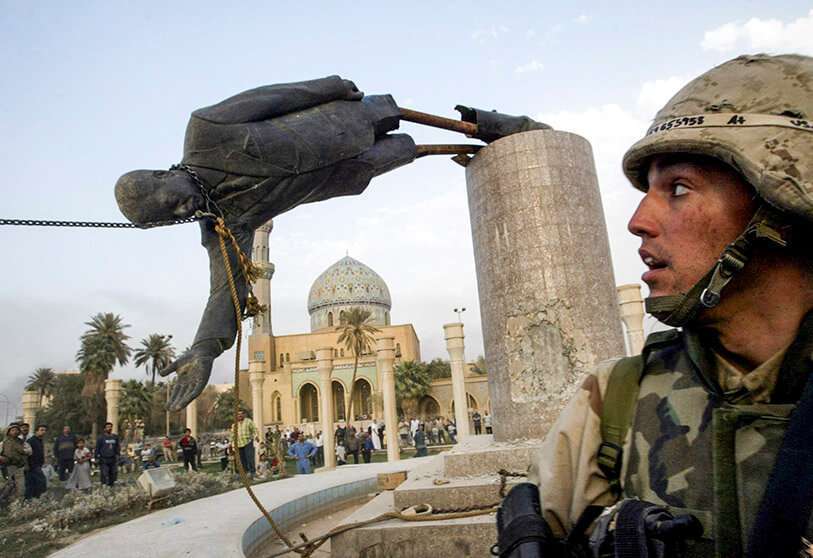
Throughout its recent history, governments in the United States have assumed leadership of the West and, as far as possible, the world. It is no accident that it has been seen as the 'world's policeman', acting to protect its interests and the liberal international order it claims to defend. And after the collapse of the Soviet Union three decades ago, the US position of dominance was considerably strengthened, giving rise to the so-called unipolar moment: a short period in history, roughly between 1990 and 2005, in which the United States (and, by extension, the West) had no rivals for global hegemony. Madeleine Albright, Secretary of State during Bill Clinton's administration, referred to the United States as the "indispensable nation", reflecting a vision of the country and the world order that has reverberated in White House decision-making to this day for both Republican and Democratic presidents.
But the US unipolar moment was just that, a brief moment in world history. Today's multipolar world, where power is fragmented and divided among several powers, is very different from that of 1990, with the Berlin Wall down and the Soviet Union in the throes of collapse. Two examples illustrate this perfectly. Despite the many overlaps between the two events, their consequences and the context in which they occurred could not be more different.

In 1990, the United States declared war on Saddam Hussein's Iraq, which had invaded the tiny emirate of Kuwait. The invasion threatened to destabilise the Persian Gulf and the entire Middle East, and especially US allies such as Saudi Arabia, which borders Iraq. The United States, then presided over by George H.W. Bush, had the support of more than a dozen other countries. Bush, was supported by more than thirty countries, forming the largest coalition since World War II. Operation Desert Storm was a resounding success, dislodging Iraqi troops from Kuwait and restoring balance to the region. Bush, despite pressure from members of his cabinet, refused to invade Iraq. But he consolidated America's undisputed leadership, and relegated Hussein's defeated Iraq to economic ostracism and political irrelevance for the next decade.
Fast forward thirteen years. History is fickle, and in 2003 the president of the United States was the son of George H.W. Bush. Bush. Two years had passed since the attack on the Twin Towers and the War on Terror announced by Bush Junior was beginning to take shape. After claiming (falsely, as it turned out) that Saddam Hussein was developing weapons of mass destruction, the Bush administration began the war against Iraq, which Bush justified as necessary to pre-emptively prevent a future attack on America.
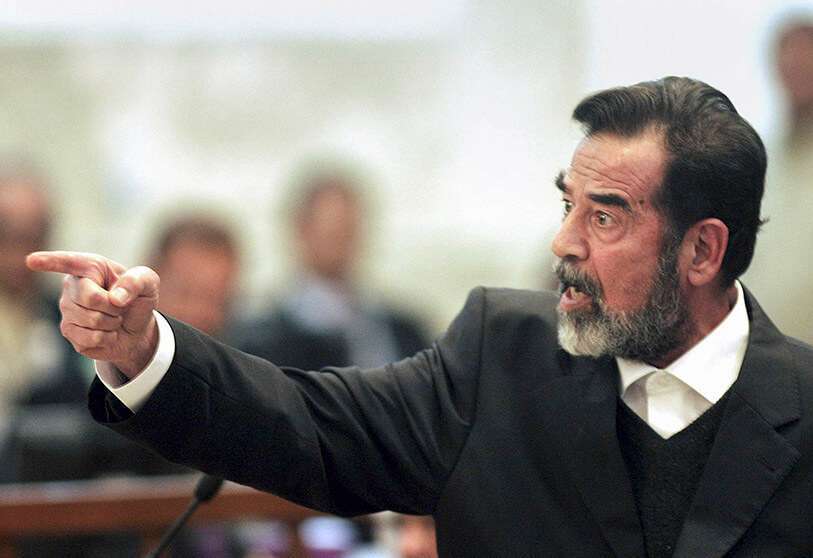
So far, the 2003 war and the 1990 war have parallels. This time, however, the US did not have the support of a global coalition. Only the United Kingdom (despite the refusal of its Parliament), and, to a lesser extent, states such as Spain and Poland, joined Washington in the offensive against Hussein. The United States was more alone than it had been thirteen years earlier. Moreover, with the benefit of hindsight, there is now a consensus that the consequences of the Iraq war were disastrous for US interests. Hussein was deposed and executed, yes, but the Iraqi state was crumbled and never replaced by an efficient and representative structure that could integrate millions of Iraqis of different sects who witnessed the atrocities perpetrated by the US military. The result was the proliferation of guerrilla and terrorist groups, the collapse of all authority and the rise of Iran, the US's great regional rival, which used its links with the Shia population in Iraq to influence successive governments in Baghdad until today. Moreover, the war made the US an enemy in the eyes of much of the population in the region.
Indeed, the failure in Iraq accelerated the decline of the United States in the region, to the benefit of those very actors that Bush wanted to curb through the invasion. In the years following the 2003 invasion of Iraq, the global chessboard began to change: China and Russia were rearing their heads in the economic and military arenas; the European Union was trying to put together a coherent policy among all its member states; and several developing countries, such as Brazil, South Africa, Iran, Mexico and of course India were on the rise economically, gaining more and more influence in global governance.
The United States was no longer alone at the summit. The multipolar world was on the move.
The consequences of the 2003 occupation of Iraq were dire for the US. This failure can be attributed to 'overreach', an excess of ambition in US foreign policy, then based on the desire to be the only hegemonic power in the world, the global policeman. The United States had to be everywhere possible for as long as possible. Just as Bush Sr. refused to open Pandora's box in 1990 and invade Iraq after liberating Kuwait, Bush Jr. led a brutal war aimed at consolidating America's position in the Middle East and the world and expanding democracy, what became known in his administration as the 'Freedom Agenda'. If the terrible attacks of 9/11 symbolised the end of the unipolar moment, the years following the Iraq War confirmed America's inability to shape the world in its own way.
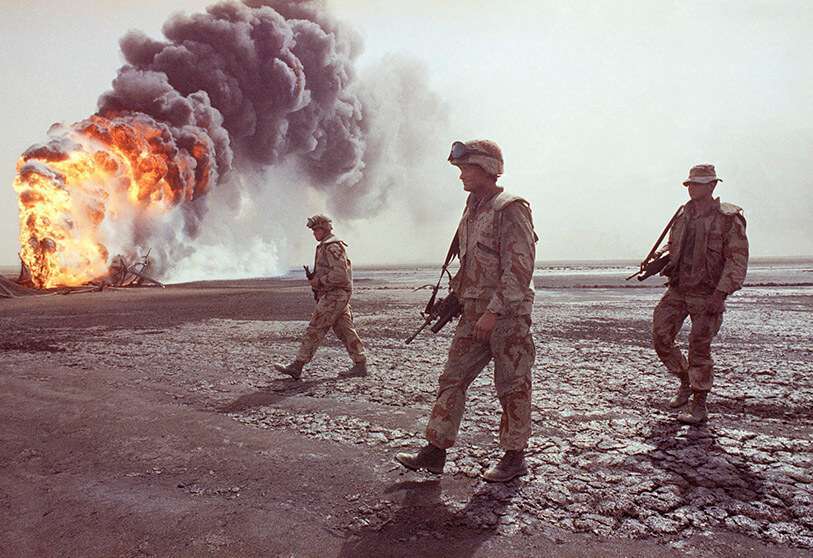
Barack Obama was elected president in 2008 with a message sharply critical of his country's foreign policy, and his term of office saw the progressive evacuation of troops from Iraq. In 2011, however, the US carried out a series of bombing raids on Libya that contributed to the assassination of Muammar al-Gaddafi, demonstrating that the impulse to intervene militarily in other countries, at the cost of the lives of thousands of innocent people, is still very much alive in Washington.
However, the Iraq War and the intervention in Libya seem to have provoked a backlash in favour of a more cautious and humble policy among US voters. The withdrawal from Afghanistan was supported by 77% of the electorate, according to a joint Washington Post/ABC News poll. This support extends to both Democratic (88%) and Republican (74%) voters, something that seems unnatural in times of extreme polarisation.
In fact, both Donald Trump and Joe Biden made the end of the 'forever wars', and above all the withdrawal from Afghanistan, one of their election promises. The Trump administration reached an agreement with the Afghan government and the Taliban to leave the country by 2021, and Biden fulfilled his promise to evacuate all US troops by September of this year. Despite their differences in rhetoric and style, Trump and Biden are more alike than their voters would like to acknowledge, at least on foreign policy. Both presidents have consolidated the reorientation of their country's foreign policy towards Asia initiated by Obama, due to what the White House perceives as increased aggression from China and Russia. The military presence in the Middle East, at some 60,000 troops, has moderated from a peak of 200,000 at the beginning of this century.
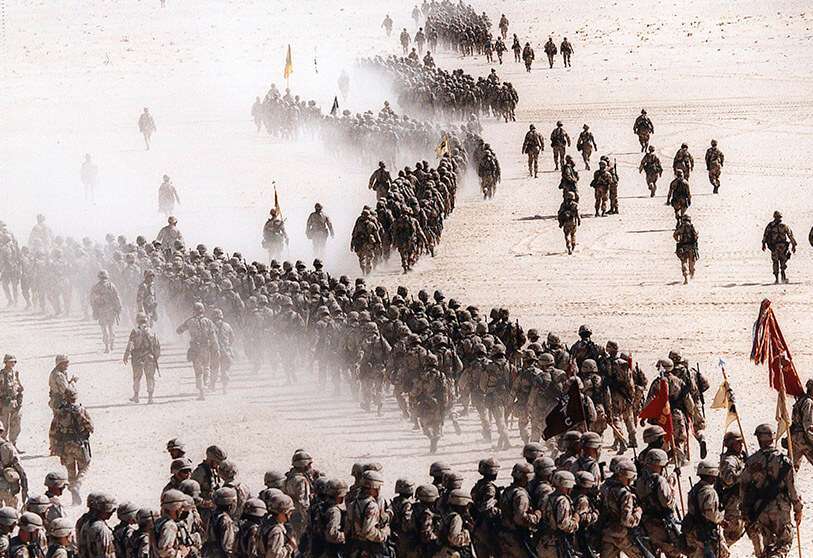
In the United States, a realist position seems to be gaining ground, advocating a limitation of the pre-eminent global role it has played so far, as opposed to the idealism of the vision of the United States as the global policeman. In academic and policy circles, this strategy of restraint is becoming increasingly popular. Biden himself was already one of the voices critical of Obama's interventionism, especially in the bombing of Libya, and this year he ended the war in Afghanistan after two decades. His administration seems to have opted for the more realistic, less ambitious, but more modern approach. This does not imply that the US has lost its privileged position, but rather that it is no longer the only one with such a position.
This new, more pessimistic view of the United States' chances of being the leader of a multipolar world necessarily implies a narrowing of its national interests. Now that the United States cannot (and should not) be present in all possible places at all possible times, its strategy must be more selective: not all of Washington's rivals pose an existential threat; not all events, no matter how tragic, can be satisfactorily resolved through force. That is the great challenge for present and future American governments: to detect where and when the United States should defend its interests, and where and when it should refrain from action.
For the moment, despite frequent lamentations about America's isolationist drift, the reality is that what is being promoted in the White House since the Obama era is a reorientation of its foreign policy in line with the times, not a total surrender of its vital interests. The US is not isolating itself; it is simply replacing its strategy of global hegemony with a more measured, selective and realistic one. And in this revision of its priorities, the Indo-Pacific region has replaced the Middle East as the main arena in which the United States, in the eyes of its leaders, must consolidate its position. The recent pact between the United States, the United Kingdom and Australia (AUKUS) is intended to counter China's ambitions in this area of the world.
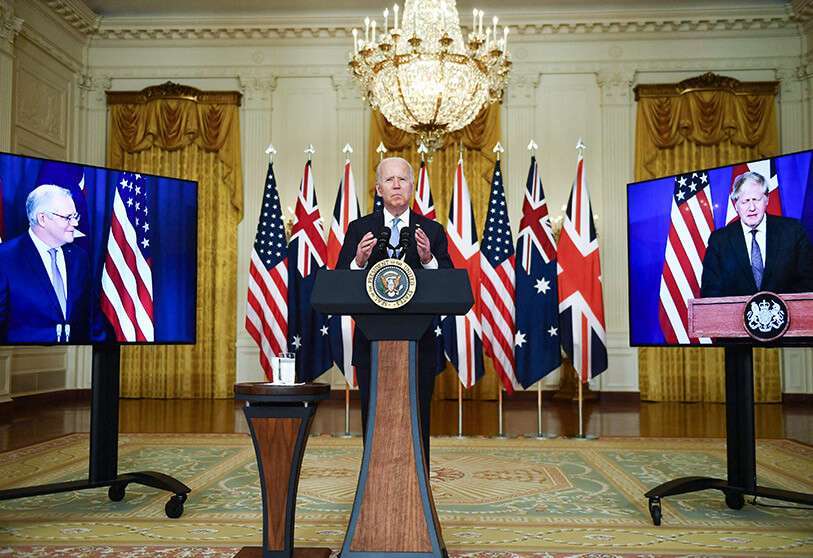
This is where Afghanistan comes into play. The truth is that the Central Asian country is not a strategically important enclave for the United States today, and perhaps never has been. However despicable the Taliban caliphate's policies towards women, girls and religious minorities, from a geopolitical point of view the United States had little to gain and much to lose. After twenty years of American occupation, the Washington-backed Afghan government has not been able to become a credible alternative to the Taliban in the eyes of many of its citizens. And in the event that China and Russia manage to increase their presence in Afghanistan (which remains to be seen), America's global position would not be seriously threatened - nor would that of the West, despite the apocalyptic laments expressed by various politicians and analysts. In a multipolar world, powers tend to secure an area of influence around their borders. And just as the US secures good relations with Mexico and other Central American republics to the south and Canada to the north, China is keen to do the same with the Taliban's new Afghanistan. Perhaps there was a time when the US could maintain a strong presence in a country as remote and different as Afghanistan (whether it should do so is another matter), but today that is virtually impossible.
The tension between idealism and pragmatism has always permeated debates over US foreign policy. The electorate and establishment in the US seems to have learned the lesson of Iraq and, despite still having hundreds of bases abroad and being involved in six wars to date, its future foreign policy is likely to be more realistic, limited and adapted to a fragmented world in which it cannot be everywhere all the time. This is America's eternal dilemma: to strike a balance between its ambitions and reality; not to withdraw completely from the world, but not to err on the side of interventionism. Both positions are ultimately detrimental to its interests and its own population.
John Quincy Adams, the sixth American president, declared in 1821 that America "does not go abroad in search of monsters to destroy". Two hundred years later, and after decades of wars in which the United States embarked in order to wipe out a host of menacing monsters, there are indications that its foreign policy is conforming to Adams' wish. The future will tell whether the withdrawal from Afghanistan remains a mere symbol or whether the United States is really willing to rethink its role in the world, one that is more discreet and commensurate with its capabilities. The military-industrial complex, which Eisenhower warned about as early as the 1950s, continues to have a major influence on day-to-day life in Washington. Even so, there is reason to suppose that the era of 'forever wars' and America as global policeman is over. There are now several policemen patrolling the planet, and America must act accordingly.

